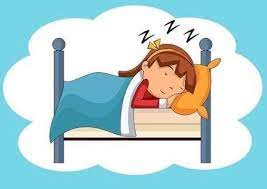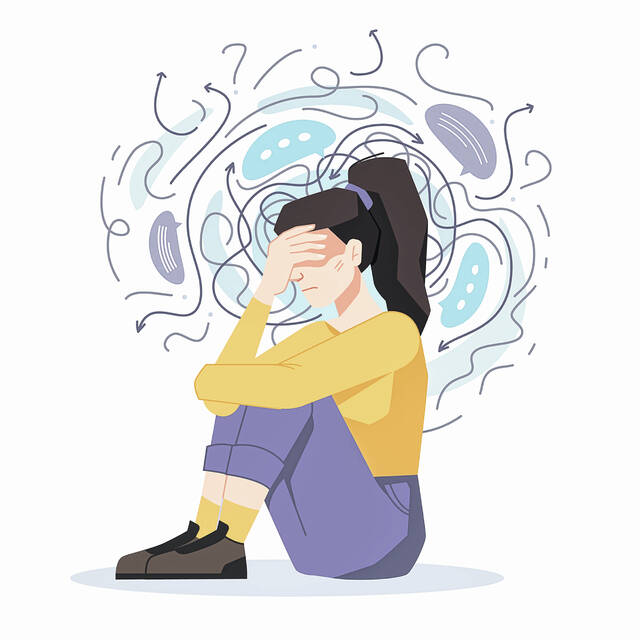Anxiety disorders are the most common mental illness in the United States, affecting 40 million adults in the United States aged 18 and older. That’s 18% of the population! If you are one of the millions of people who suffer from anxiety, you know that it can be a debilitating condition. Symptoms can include extreme fear, sweating, racing heart rate, shortness of breath, and more. In this blog post, we will discuss some strategies for coping with extreme anxiety.
Contents
Defining Extreme Anxiety
 Extreme anxiety is characterized by excessive worry and fear that interfere with daily activities. People experiencing extreme anxiety may have difficulty concentrating, sleeping, or carrying out basic self-care tasks. Extreme anxiety can be debilitating, preventing people from going to work or school, socializing, or leaving the house.
Extreme anxiety is characterized by excessive worry and fear that interfere with daily activities. People experiencing extreme anxiety may have difficulty concentrating, sleeping, or carrying out basic self-care tasks. Extreme anxiety can be debilitating, preventing people from going to work or school, socializing, or leaving the house.
It is often described as a feeling of being “out of control.” Also, people with extreme anxiety may avoid situations that trigger their anxiety, which can lead to social isolation. Researchers have found that extreme anxiety is associated with an increased risk of developing depression.
For example, one person might be anxious about an upcoming test at school and feel nauseous. Another person might have extreme anxiety about leaving the house and may only leave their home to go to work or school.
Signs And Symptoms Of Extreme Anxiety
There are distinct signs and symptoms of extreme anxiety that distinguish it from other forms of anxiety. These include:
- Persistent worry or obsessions about trivial things
- Excessive fear or dread
- Avoidance of social situations and activities
- Intrusive thoughts or images
- Physical symptoms such as trembling, rapid heart rate, sweating, and difficulty breathing
- Sleeping problems
- Feeling uneasy and worried
- Interpersonal and relationship issues
These are some of the most common signs and symptoms of extreme anxiety. It is important to remember that everyone experiences anxiety differently, so not everyone will experience all of these symptoms. If you are experiencing any of these symptoms, it is important to seek professional help.
Extreme anxiety can be extremely debilitating and can interfere with your ability to live a normal, healthy life. So, you should not try to tough it out or ignore it. If you are struggling with extreme anxiety, there are treatment options available that can help.
Types Of Extreme Anxiety
 Extreme anxiety is actually a type of anxiety disorder. Anxiety disorders are mental health conditions that involve excessive amounts of anxiety and fear. Extreme anxiety can be debilitating and make it difficult to function in day-to-day life. There are different types of extreme anxiety, including:
Extreme anxiety is actually a type of anxiety disorder. Anxiety disorders are mental health conditions that involve excessive amounts of anxiety and fear. Extreme anxiety can be debilitating and make it difficult to function in day-to-day life. There are different types of extreme anxiety, including:
Generalized Anxiety Disorder
This is the most common type of anxiety disorder. People with generalized anxiety disorder experience excessive anxiety and worry about a variety of things, including their health, work, school, family, and relationships. Moreover, GAD is characterized by symptoms such as difficulty concentrating, muscle tension, and irritability.
Panic Disorder
People with panic disorder experience sudden and unexpected episodes of intense fear. These attacks can be so severe that they feel like they are having a heart attack or going crazy. Panic disorder is characterized by symptoms such as chest pain, shortness of breath, sweating, and dizziness. Moreover, people with panic disorder often worry about having another panic attack and may avoid places or situations where they fear an attack may occur.
Social Anxiety Disorder
Social anxiety disorder is characterized by extreme anxiety and fear of social situations. People with a social anxiety disorder may avoid social interactions, feel extremely self-conscious in social situations, and experience physical symptoms such as sweating, racing heart, and difficulty breathing.
Obsessive-Compulsive Disorder
This is often characterized by intrusive and unwanted thoughts (obsessions) that lead to repetitive behaviors (compulsions). People with OCD may wash their hands excessively, check things repeatedly, or hoard items. More often, people with OCD have both obsessions and compulsions.
Post-Traumatic Stress disorder
 People with PTSD may relive their trauma through nightmares and flashbacks. They may also have difficulty sleeping, feel irritable and on edge, and have trouble concentrating. All of these symptoms can make it difficult to function in day-to-day life. In fact, these symptoms make it difficult for people with PTSD to feel safe in their own bodies. And can increase the risk of developing substance abuse problems, among other mental health disorders.
People with PTSD may relive their trauma through nightmares and flashbacks. They may also have difficulty sleeping, feel irritable and on edge, and have trouble concentrating. All of these symptoms can make it difficult to function in day-to-day life. In fact, these symptoms make it difficult for people with PTSD to feel safe in their own bodies. And can increase the risk of developing substance abuse problems, among other mental health disorders.
Causes Of Extreme Anxiety
There are a variety of things that can cause extreme anxiety. Some people are born with a predisposition to anxiety, which means it runs in their family. Others may have experienced traumatic events in their life that have led to anxiety. And still, others may have an underlying medical condition that causes anxiety.
One theory suggests that people who experience extreme anxiety may have a chemical imbalance in their brain. This theory is supported by the fact that many people who experience extreme anxiety find relief when they take medication.
There are a variety of things that can trigger extreme anxiety. Some triggers are environmental, such as being in a crowded place or experiencing a natural disaster. Other triggers are internal, such as stress or anxiety about an upcoming event.
Extreme anxiety is caused by a combination of genetic, psychological, and environmental factors. If you are experiencing extreme anxiety, it is important to talk to a doctor or mental health professional to find out what is causing your anxiety and how best to treat it. While the exact cause of extreme anxiety may be unknown, there are some risk factors that have been identified.
So, it is important to find the root cause of your anxiety in order to treat it.
Get Professional Treatment
 Talking to a professional can be an extremely effective way to manage your anxiety. The best treatment options include:
Talking to a professional can be an extremely effective way to manage your anxiety. The best treatment options include:
Therapy
This is probably the most effective way to manage anxiety. A therapist can help you understand your anxiety and develop coping mechanisms. There are types of therapies and you should choose the one that’s right for you.
Cognitive Behavioral Therapy (CBT): This is a type of therapy that helps you identify and change the negative thoughts and behaviors that contribute to your anxiety.
Exposure Therapy: This is a type of therapy that involves gradually exposing yourself to the things you’re afraid of. This can help you learn to manage your anxiety.
These two ways of therapies are widely prescribed for extreme anxiety. If you have anxiety, talk to a professional. You can contact Mantra Care, it is a platform that helps you find mental health professionals, book appointments, and get help.
Medication
Medication is an option that is often used to help people who are experiencing extreme anxiety. There are many different types of medication that can be used to help with anxiety, and it is important to talk to a doctor about what options are available. Medication can be an effective way to manage extreme anxiety. Some of the medication examples are:
- Anti-anxiety medication
- Beta-blockers
- Tricyclic antidepressants
- Serotonin and norepinephrine reuptake inhibitors (SNRIs)
If you are considering medication as an option for managing your extreme anxiety. Then, it is important to talk to a doctor to learn more about the different types of medication. Because medication impacts everyone differently, it is important to find the right medication for you.
Support Groups
 It is estimated that one in four people suffer from some form of mental illness. That means that there are a lot of people out there who understand what you’re going through. One of the best things you can do for yourself when experiencing extreme anxiety is to seek out a support group.
It is estimated that one in four people suffer from some form of mental illness. That means that there are a lot of people out there who understand what you’re going through. One of the best things you can do for yourself when experiencing extreme anxiety is to seek out a support group.
There are many different types of support groups, so it’s important to find one that’s right for you. There are support groups for specific disorders, such as anxiety or depression, and there are also general support groups. You can find support groups through your local community center, hospital, or mental health clinic. You can also search online for a group that meets in your area.
If you’re not sure if a support group is right for you, try attending one meeting as a guest. This will give you an opportunity to see if the group is a good fit for you and if you feel comfortable with the other members.
Self-Coping Strategies
There are a number of self-coping strategies that can help you deal with extreme anxiety. Some of these include:
Identifying your triggers
This is the primary thing you need to do when it comes to dealing with extreme anxiety. You need to find out what sets off your anxiety and then work on avoiding those triggers. In fact, recognizing your triggers is the first step to managing your anxiety. Moreover, it can also help you identify your early warning signs so that you can take action before your anxiety gets out of control.
Relaxation techniques
 There are a number of relaxation techniques that can help you deal with your anxiety. These include things like:
There are a number of relaxation techniques that can help you deal with your anxiety. These include things like:
- yoga,
- meditation, and
- deep breathing exercises.
It is believed that relaxation techniques work by helping to lower your heart rate and blood pressure. Which in turn helps to reduce the physical symptoms of anxiety. In fact, relaxation techniques can be so effective that some people have been able to completely eliminate their anxiety.
Exercise
Exercise is another great way to deal with extreme anxiety. It releases endorphins, which have mood-boosting effects. Additionally, exercise can help to take your mind off of whatever is causing your anxiety. And it also helps to improve your overall health. Even so, studies have found that people who suffer from extreme anxiety tend to avoid exercise.
Eat healthy diet
What you eat can also affect your anxiety levels. Therefore, it is important to eat a healthy diet that includes plenty of fruits, vegetables, and whole grains. Additionally, you should try to limit your intake of caffeine and alcohol. Both of these substances can make anxiety worse. However, your focus should be on eating a healthy diet. As this is the foundation for good health.
Get enough sleep
 Sleep is also important for managing anxiety. In fact, studies have found that people who don’t get enough sleep are more likely to suffer from anxiety. Additionally, sleep deprivation can make anxiety worse. Therefore, it is important to get at least seven to eight hours of sleep every night. Pay attention to your sleep habits and make sure you are getting enough rest.
Sleep is also important for managing anxiety. In fact, studies have found that people who don’t get enough sleep are more likely to suffer from anxiety. Additionally, sleep deprivation can make anxiety worse. Therefore, it is important to get at least seven to eight hours of sleep every night. Pay attention to your sleep habits and make sure you are getting enough rest.
Talk to someone
If you’re feeling overwhelmed by anxiety, it’s important to talk to someone about it. This could be a friend, family member, therapist, or anyone else who can offer support. Talking about your anxiety can help to reduce its intensity. Additionally, it can help you to better understand your anxiety and how to deal with it.
Limit your alcohol and caffeine intake
Alcohol and caffeine are believed to worsen anxiety. Therefore, it is important to limit your intake of these substances. If you find that you’re struggling with anxiety, it might be helpful to cut out alcohol and caffeine entirely. Researchers have found that people who consume high levels of caffeine are more likely to suffer from anxiety.
Stay positive and focus on the present
It is important to stay positive when dealing with extreme anxiety. This means focusing on the present and not worrying about what might happen in the future. Additionally, it is important to focus on your strengths and not your weaknesses. When you do this, you will be better equipped to deal with your anxiety.
So, these are some coping strategies for extreme anxiety. Remember, it is important to find what works for you. And to seek professional help if your anxiety is severe. Extreme anxiety can be debilitating. But with the right treatment, it can be managed.
Conclusion
To conclude, extreme anxiety is considered a mental health disorder that can have debilitating effects on a person’s life. If you are experiencing extreme anxiety, it is important to seek professional help. There are many treatment options available that can help you manage your anxiety and live a more productive life.
Moreover, it is essential to take care of yourself both mentally and physically. Also, make sure to surround yourself with positive people who will support you through your journey. Lastly, do not hesitate to ask for help when needed. Remember, you are not alone.
For more information, please contact MantraCare. Anxiety is a common mental health condition characterized by persistent feelings of worry, fear, and apprehension. If you have any queries regarding Online Anxiety Counseling experienced therapists at MantraCare can help: Book a trial Anxiety therapy session


